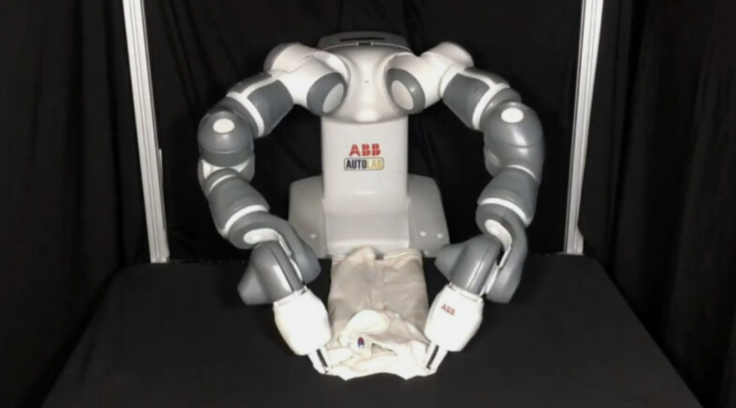UC Berkeley Researchers Show Off Prototype Of Clothes-Folding Robot
Researchers at the University of California-Berkeley have unveiled a new robot that can fold between 30-40 randomly positioned garments per hour.
The robot, called SpeedFolding, was developed by the UC Berkeley AUTOLab research team.

The team developed the robot's neural network, a BiManual Manipulation Network (BiMaMa-Net) and a pair of robotic arms, which allows it to finish folding a garment within two minutes. The SpeedFolding robot can also identify how to fold a garment based on the color, shape or stiffness of the item.
SpeedFolding is a first of its kind as previous versions of similar robots were typically only able to complete three to six folds per hour.
Describing SpeedFolding on the Ars Technica website, AUTOLab said the robot assesses how to fold a particular garment but uses an overhead camera that "examines the initial state of the garment" and then grabs it with its two arms to follow a step-by-step process.
A previous model, FoldiMate, was able to fold about 25 pieces of laundry in less than five minutes but had to be centered in a particular direction because of an inability to respond to randomly positioned garments.
SpeedFolding isn't the first laundry-folding robot to be developed, as Laundroid was created by a Japanese company with the same name. However, it never went into mass production and the company went bankrupt in 2019 after owing $20.1 million to 200 creditors.
© Copyright IBTimes 2025. All rights reserved.





















